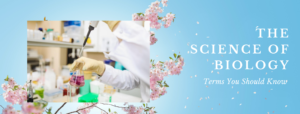These medical terms are commonly used in association with Sickle Cell Disease. Knowing and understanding these terms will aid you in having an informed conversation with your physician or allied healthcare professional. These terms will also help adults living with sickle cell, parents, and other caregivers to better advocate for themselves and others living with SCD.
Epidemiology: The scientific branch of medicine that studies the prevalence of, transmission, and possible control of sickness, diseases, and other issues pertaining to health.
Physiology: The biological study of the body, all of its parts, and the normal functioning during life.
Pathology: The scientific branch of medicine that studies body tissue to determine the cause of illness/disease to achieve an accurate diagnosis, or in a forensic capacity to determine the cause of death.
Pharmacology: The study of how medicine/drugs can be used to modify the symptoms of a disease to reduce or eliminate the causes of pathology.
Analgesic Agents: Drugs used to reduce or eliminate pain.
Hemolytic Anemia: Hemolysis is the destruction of red blood cells (RBCs), Hemolytic anemia is the rapid destruction of red blood cells. The bone marrow cannot produce an adequate amount of RBCs to replace the volume that is lost.
Intrinsic Hemolytic Anemia: In the case of sickle cell disease and thalassemia, intrinsic hemolytic anemia is caused by the single gene mutation that causes the bone marrow to underproduce red blood cells, and makes the free-flowing hemoglobin molecules in the RBC to polymerize and turn the round red blood cell into sickle shapes. Sickling of the RBCs often causes hemolysis of the cell.
Extrinsic Hemolytic Anemia: Non-genetic or external factors such as splenic sequestration, infection, and side effects from medication can precipitate the onset of hemolytic anemia. The following drugs can cause extrinsic hemolytic anemia:
- Acetaminophen (Tylenol)
- Ibuprofen (Advil, Motrin IB)
- antibiotics like cephalexin, ceftriaxone, penicillin, ampicillin, or methicillin
Hemolytic anemia contributes to comorbidities (complications) ischemic tissue damage (damage due to the lack of oxygen). The most common ischemic complications are Avascular Necrosis (AVN), renal dysfunction, and cognitive dysfunction from strokes.
Talk with your doctor or nurse practitioner to learn more about complications associated with sickle cell disease, and the modalities of available treatments.
If you or someone you know is living with sickle cell disease (SCD) and needs help, contact the Sickle Cell Thalassemia Patients Network to speak with a Community Health Worker (CHW). Email Mark Goodwin, LCSW, Project Director at mark.goodwin@sctpn.net or call (347) 533-8485.


